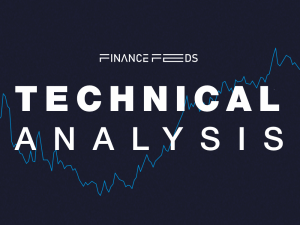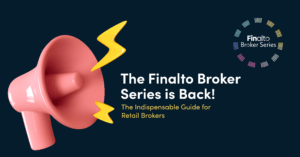Chinese IBs continue to flock from the old, state exchanges to FX, with the government’s help! – Live from Guangzhou
“Most IBs we are looking for are IBs that have been working with exchanges. They have a very good client base, and the clients are wealthy with strong portfolios across many asset classes, but because the small regional exchanges were operating a B-book and were not bona fide exchanges, the government has brought this to public attention and is shutting them down, and the investors need something more reliable and less subject to malpractice, so are turning more and more to spot FX” – Elvis Tsang, BeneForex

In Guangzhou, China’s third largest city and one of the most important second tier development towns with a population of 40 million, a highly active electronic trading community that is worth hundreds of millions in assets under management and even more in volume terms, experienced Chinese traders with vast portfolios are continuing to flock toward retail FX.
FinanceFeeds reported in February this year that in Shenzhen, just 250 miles from here, an incident that occurred in which the police came to the office of a precious metals electronic trading company and arrested all 200 staff, and took them out of the office, the reason being that the firm did not have a local license for that specific province. It has become quite clear via investigations by FinanceFeeds in China that the actual reason, rather than the very politically correct official reason provided by the Police, was that these small exchanges, rather than acting as an impartial central counterparty, were actually B-booking client money and living from client losses.

The traders which used to use those exchanges are far from amateur. Quite the contrary. Whereas in a free market economy, ‘false’ exchanges such as these, with no liquidity and a nasty habit of B-booking customer funds instead of acting as their name and government registration implies – as a central counterparty – would attract very low level customers.
In China, things are somewhat different.
This is because the government controls the exchange market, the majority being partially and in some cases fully owned by the state, and the only licenses available in China for trading financial derivatives are those issued by the government to exchanges.
The list of instruments is very limited, due to restrictions by the state on foreign stock, and even with bona fide exchanges which are acting in accordance with exchange guidelines, liquidity is really only available from one or two sources, hence inflexibility renders them unattractive but as there is no alternative, experienced traders with large portfolios continue to use them.
Experienced traders in China are of the highest level of investor. They are extremely knowledgeable, and often have portfolios of investments, managed by IBs and portfolio managers, that are derived from the monthly rental incomes generated by gargantuan property investment and commercial real estate projects, massive agricultural enterprises and vast-scale technological and electronics company ownership.
The will by the Chinese government to put a stop to small regional exchanges that misbehave toward their clients has developed further, and the long arm of the state has now reached Wuhan, where a similar exercise has been performed by Chinese police, closing down several regional exchanges for running a B-book.
What trading options do these experienced and high net worth traders have?
At the Fortune Forum FX industry conference, speaking on Saturday to Elvis Tsang, Overseas Business Director at Chinese market orientated FX brokerage BeneForex, the answer is that they are heading toward OTC FX in their droves.
Chinese business relationship between Austalia and China is very strong, as Australia (although still an 11 hour flight!!) is considered to be part of the Asia Pacific business region, plus many highly educated Chinese professionals live in Sydney, Cairns and Brisbane, making for a resource pool that is compatible with China when employing responsible officers and client facing teams, as well as operational staff within ASIC regulated firms that have a Chinese market focus.
When asking Mr Tsang what some of the country’s large IBs, responsible for substantial client portfolios ask, Mr Tsang said “There have been some important changes in the Chinese market. Previously, many IBs used to work with exchanges, however in Shenzhen, as you mentioned, many of them have been closed down, and in Wuhan the Police and the government’s financial officer came to an exchange just recently and arrested 300 people. The Chinese government wants to stop this type of business, and they can stop it within 3 months.”
“Most IBs we are looking for are IBs that have been working with exchanges. They have a very good client base, and the clients are wealthy with strong portfolios across many asset classes, but because the small regional exchanges were operating a B-book and were not bona fide exchanges, the government has brought this to public attention and is shutting them down, and the investors need something more reliable and less subject to malpractice, so are turning more and more to spot FX” he said.
“The customers are used to working with a domestic system which is very much based on a government controlled series of asset classes, and now they are moving to FX which means that they have to learn the international asset classes” he said.
With regard to having to learn about regulation, this is a matter of far more significance than if a company in the Western world would cease to exist and its clients have to look for a firm in a different region, as there is some degree of similarity across most major financial centers globally.
In China, however, things are completely different. “The licenses for all financial services companies are issued by the State Council of the Peoples Republic of China, therefore most Chinese investors, even if they are experienced investors, they will be used to the system used by the Chinese government, and despite the popularity of FX, FX companies are excluded” said Mr Tsang.
There is no cross-referencing with firms or infrastructure outside China, and there is no jurisdiction outside China for the Chinese State Council, thus Chinese investors are now having to learn an international framework of infrastructure and asset classes, which requires a leap of faith as they are putting trust in execution methodologies that are in many cases new to them, and which have many components that are not visible from behind the famous internet firewall.
Mr Tsang agrees that the three most significant overseas regulators are North America’s NFA, Britain’s FCA and Australia’s ASIC. “Most of the investors in China have less recognition with regard to what exactly the FCA, NFA and ASIC are as actual entities, they just know that this company is handled by a specific government office. When you want to establish a Chinese financial services company, it is very different to abroad because the company has to obtain approval from the Government policy office, which is all handled directly by the Chinese government, not by external regualtory organization” he said.
“This is why as a retail brokerage, if you want to attract a customer from the internal market to a firm which is regulated by an external regulator, you have to educate the investor as to what the extrenal regulator does, and how regulation and financial markets organization works in Australia or Britain” – Elvis Tsang, Overseas Business Director, BeneForex
“This applies to having to take liquidity from outside, but the best way is to take liquidity from global, well recognized liquidity providers (Saxo Bank, Advanced Markets, ISPrime, Sucden Financial – Ed) that have a base in China, this way the client gets full access to global Tier 1 liquidity. Working with a Chinese bank would only provide RMB liquidity” he said.
With regard to payment channels, Mr Tsang said “We use a third party transfer channel. This way when an investor transfers money in RMB into the trading account, in less than 10 minutes, the client funds are transferred to Australia and held in a client fund account, under ASIC rules. If withdrawals are made, they go straight to the client, which takes approximately two days because of the clearing that is required to send money to China, but this is a preferred and trust method that appeals to clients” he concluded.









